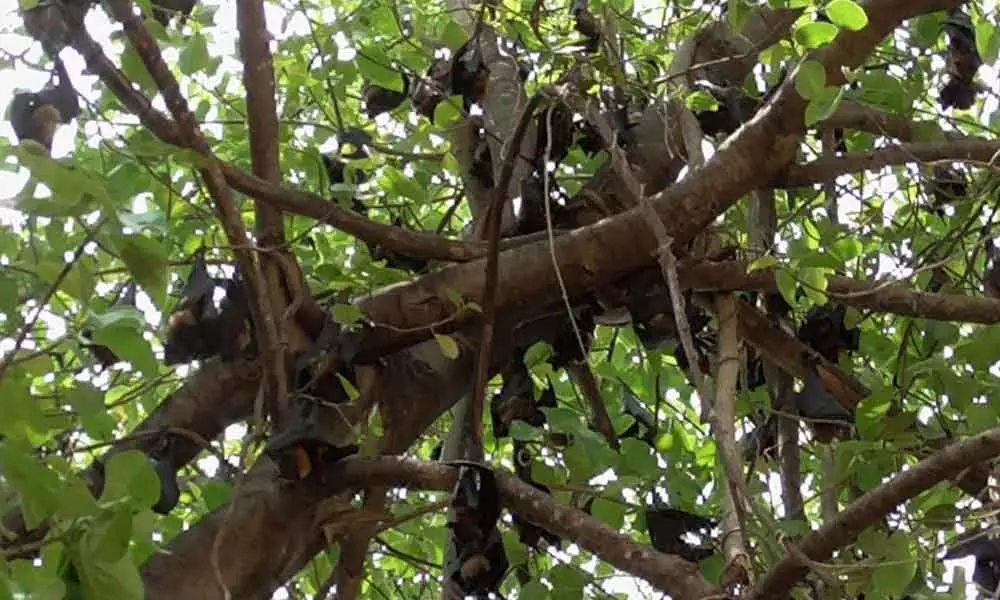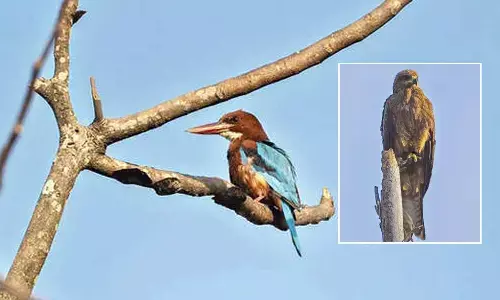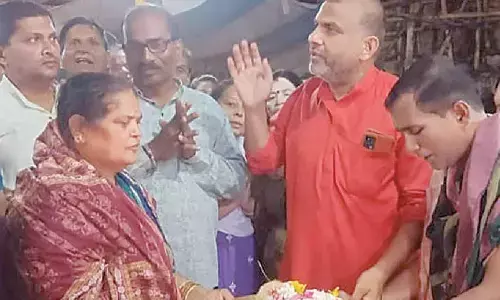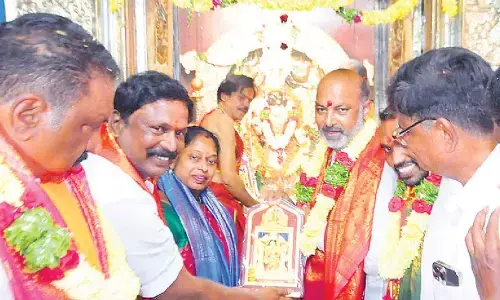Ongole: Villagers unfriend old companions
 Villagers unfriend old companions
Villagers unfriend old companions- . Villagers once known for protecting bats are now keeping them away Called as 'tapassu pakshulu' (penancing birds), bats are seen as friendly and useful creatures by villagers who appreciate their role in pollination of crops and promoting greenery in their surroundings
- . Following talk of deadly virus transmitting from bats to humans in a Chinese market, now some of them are asking officials to remove the bats from trees in their villages
Ongole: The fast-spreading novel coronavirus not only disturbed social milieu but affecting the natural bond between humans and creatures. The unique case of bonding between bats and humans is now suffered due to the virus. Vattivepamanipalli, Kovilampadu and Zarugumalli villages are known as safe haven for bats. People of these villages protect and respect them. But, the news that the deadly virus was infected from bat to humans, now forced these people to rethink about their practice.
The villagers call them as 'tapas pakshulu' for their posture of doing penance by hanging upside down from the tree branches. These nocturnal mammals feed on insects and fruits. Their excrement is rich manure and the farmers use it in their farms. The locals do not allow anyone to harm these mammal birds as they are a part of the village environment for generations and are being helpful to the farmers by playing a key role in the pollination and promoting the greenery surrounding the village.
Yarranagula Srinivasulu of Vattivepamanipalli said that the bats are an integral part of their village and they cannot differentiate the flying mammals. He recollected how the people used to collect the fruits that are bitten by the birds and consume them in their childhood. He said that the rumours from China that bats are the reason behind the spread of coronavirus are shocking news to them. But the villagers have not yet decide what to do.
Y Obulesu, another villager said the fruit bats are in the village for more than 70 to 80 years and they did no harm to anyone. He said that there were several thousands of bats in their village once but the cyclones and other environmental conditions reduced them to a few hundred now. He questioned that why should we force these mammals just based on an incident that happened somewhere far from here.
But, the villagers of Zarugumalli are a little bit advanced and decided to give up the practice. Daggumati Chenchureddy, a villager said that the trees in the panchayat office are the home for the mammals for decades. He said that the youngsters in the village explained to them that the coronavirus is spread in China as they eat them regularly. He said that though there are no eaters of bats in the village, they are still worried about the children who eat the fruits bit by the bats.
Daggubati Bhagyamma said that they complained to the officials to catch the mammals and leave them in the forest. She said that though they didn't have any enmity with the mammals, taking precautions are the best step for protecting the village and the residents.








